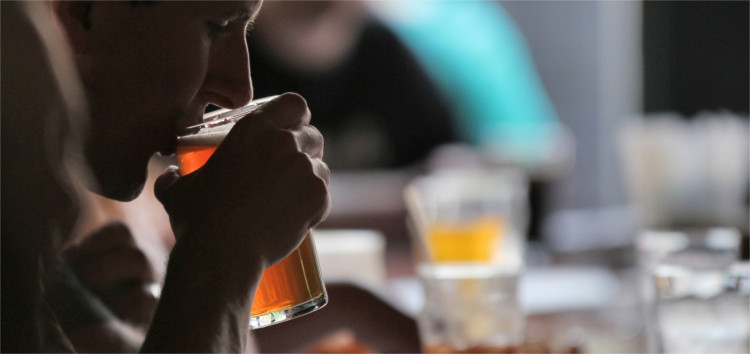Permanently Dry | Sobriety Beyond Dry January
Once dry January comes to a close, publicans around the country will rejoice as those fasting from booze filter back through their doors with a newfound fondness for drink, glowing after their month of abstinence. This might be a time when ‘Drynuary’ participants reflect on their alcohol consumption and consider if it is worth it. They might be weighing up the positives against the negatives.
Among the negatives might be the diminished levels of craic in their lives, the black hole in their lives where a black pint used to be, the constant nagging from friends wondering what’s wrong with them. The positives, on the other hand, might include better physical and mental health, heightened productivity and more money in their pockets. Some might be considering staying off the booze for more than just January, but is the support and incentive there to help them achieve this?
What is being done to support those who want to go sober for longer? We hear politicians and public figures talking so much about the ‘scourge of alcohol in our society’, how it contributes to depression, abusive relationships and broken homes and turns accident and emergency departments into scenes of chaos on weekends. Figures from Alcohol Action Ireland indicate that three deaths per day in Ireland are connected to alcohol and one in four deaths of young men aged 15-39 are alcohol related. Alcohol consumption is clearly a national problem, with little being done to solve it.
With not much else other than pubs and nightclubs open after 9pm for people to gather socially, there needs to be viable alternatives to alcohol for young people who want to go out and not drink. Ireland has the second highest alcohol excise in the EU. Drinkaware (which is funded largely by alcohol companies) say that the average Irish adult spends between €1300 and €2000 on alcohol per year. The government generates huge revenue from the drinks trade, but spends much more on the medical support needed to treat alcohol related conditions.
For people who enjoy beer, but don’t want to consume alcohol, the options are very limited. Usually Becks or Erdinger non-alcoholic beers are reluctantly offered by confused bar staff. Both of these cost as much, if not more than regular beers. According to the revenue’s excise duty rates, excise on beer ‘Exceeding 0.5% volume but not exceeding 1.2% volume’ is €0.00. So, why are pubs charging €5.20 for a non-alcoholic Erdinger? It seems to make more sense to just buy an alcoholic beer.

One of the hidden costs of alcohol consumption – as people are unlikely to tell their bosses that they are hungover – is the lack of workplace productivity and absenteeism caused by a hungover workforce. IBEC has said that this costs Irish industry 11 million days every year and €1.5 billion. The mutual understanding between employer and employee of the excuse ‘I’m dying’, might not be accepted so easily when companies look at how much it effects their productivity. It would surely make sense then for companies, as well as the government to financially support the promotion of non-alcoholic substitutes.
The recent changes in tobacco consumption offer a template for which alcohol awareness advocates could follow. Last year’s Healthy Ireland Survey showed that 29% of smokers are trying or actively planning to quit. There is no stigma or opposition to this and there are viable alternatives that can help smokers to quit, like e-cigarettes. There are numerous incentives for smokers to quit, while it seems that drinkers are being incentivised to keep drinking, with the same survey showing that ‘19% of drinkers indicate that during the past 12 months they have had feelings of guilt or remorse after drinking’.
Many smokers cite the physical behaviour involved in the process of smoking as being one of the main factors associated with their addiction. E-cigarettes and vaping pens provide users with this physical behaviour while weening away from the harmful substances in ‘real cigarettes’. Drinking a non-alcoholic drink can provide this visual and physical substitute to people taking steps to reduce their alcohol consumption in a way that a soft drink or glass of water is lacking. This needs to be recognised by the consumer protection commission and alcohol awareness groups to help those who want to genuinely improve their lives by reducing how much they drink.
